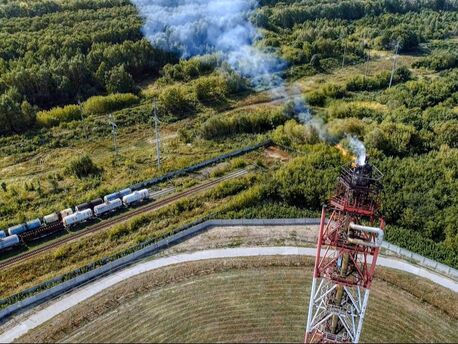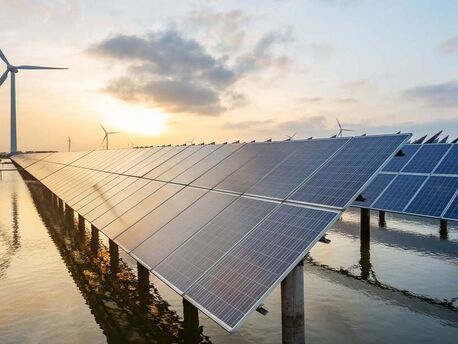As a profound reflection on the damaged nature of our relationship to God's creation, climate change is one of the most concerning issues to faith leaders of many traditions. While each tradition has nuanced views and approaches to the moral, theological, and social aspects of climate change, all recognize it as a crisis that demands a response. Learn more from NRPE's executive director, Cassandra Carmichael, in her recent article on climate and faith.
As a profound reflection on the damaged nature of our relationship to God's creation, climate change is one of the most concerning issues to faith leaders of many traditions. While each tradition has nuanced views and approaches to the moral, theological, and social aspects of climate change, all recognize it as a crisis that demands a response. Learn more from NRPE's executive director, Cassandra Carmichael, in her recent article on climate and faith.
Focus Areas
|
Methane, a greenhouse gas more potent than carbon dioxide, contributes to 11% of all US emissions, primarily coming from the agriculture and natural gas industries, People of faith and religious organizations are working to ensure that methane pollution is addressed in a way the prioritizes the health and wellbeing of individuals, communities, ecosystems, and animals.
|
Developing and implementing clean energy technology is essential on the path towards a healthier climate, cleaner air and a more just world. Religious communities have long spoken on the need for clean energy including the need to address power plant pollution.
|
|
Emissions from vehicles make up the largest portion of the United States' greenhouse gas emissions. Stronger fuel economy standards, increased public transportation access, and a push towards zero-emission vehicles will help protect both God's people and God's creation.
|
Leaders of faith communities around the world have come together to urge policy makers to work together and take strong climate action with a particular focus on equity and justice. In the United States, faith leaders have encouraged full participation in international agreement and called for the United States to be a leader in environmental policy.
|
Faith in Action
|
Riviera Presbyterian Church of Miami, Florida is demonstrating their commitment to caring for God’s great earth in several different ways that cover different areas of care. The congregation has taken steps to contain their energy footprint and help the climate. They use a geothermal cooler to power air-conditioning for their sanctuary and employ the use of reusable and environmentally sustainable supplies for the church. The congregation also has native plants and plants that feed butterflies incorporated in their landscaping to aid the environment and God’s smallest endangered creatures.
Central Baptist Church in Pennsylvania is working where they are to improve their carbon footprint and teach others how to reduce theirs as well. In 2009, Central Baptist obtained a state grant to place solar panels on their church roof, and since then the Ecology ministry group of the church has been on the move. A Green Guide has been published for other congregations that want to employ energy saving practices, the congregation is working on becoming carbon neutral, and the Ecology group sells fair-trade ecological products on Sunday mornings, including energy saving florescent light bulbs. |
Sponsored by the West Virginia Council of Churches, West Virginia Interfaith Power & Light, the Community Lutheran Partners, and NRPE, a mini-grants program for young adult climate engagement in West Virginia was launched in 2022. Mini-grants up to $500 were offered the West Virginia faith and community groups (groups must include participants under 18). Each awardee will be required to complete a climate action project as well as provide a short project presentation during a virtual 2023 spring event.
Women of Color, Women of Faith Urge Climate ActionWomen faith leaders of color convened during two summer roundtables to discuss climate issues in their communities. The resulting open letter outlines their hopes and concerns and calls on policymakers, healthcare professionals and church leaders to take action on climate justice. Click here to view the open letter.
|
Faith Leaders Call for Clean Transportation
|
|
|





